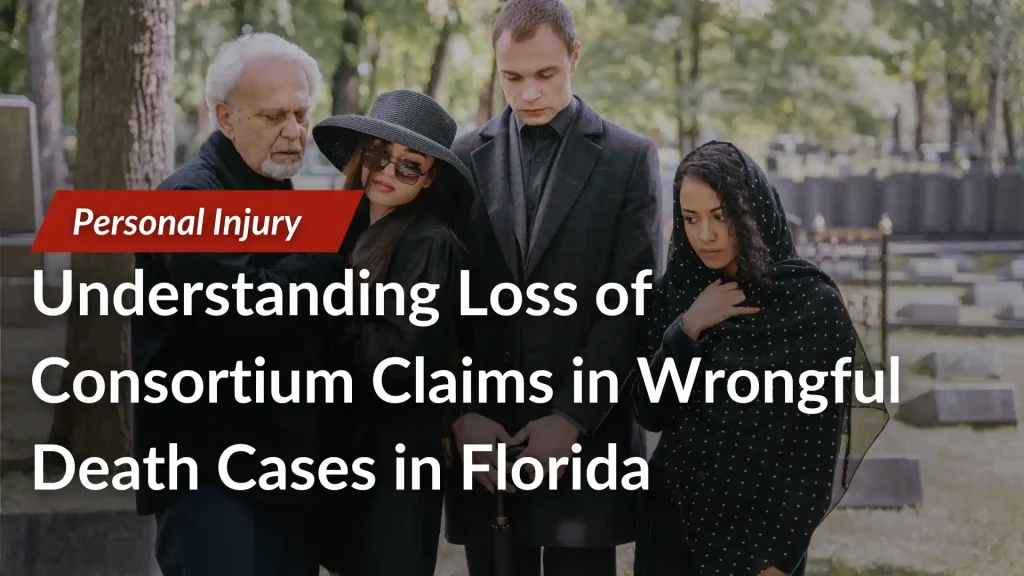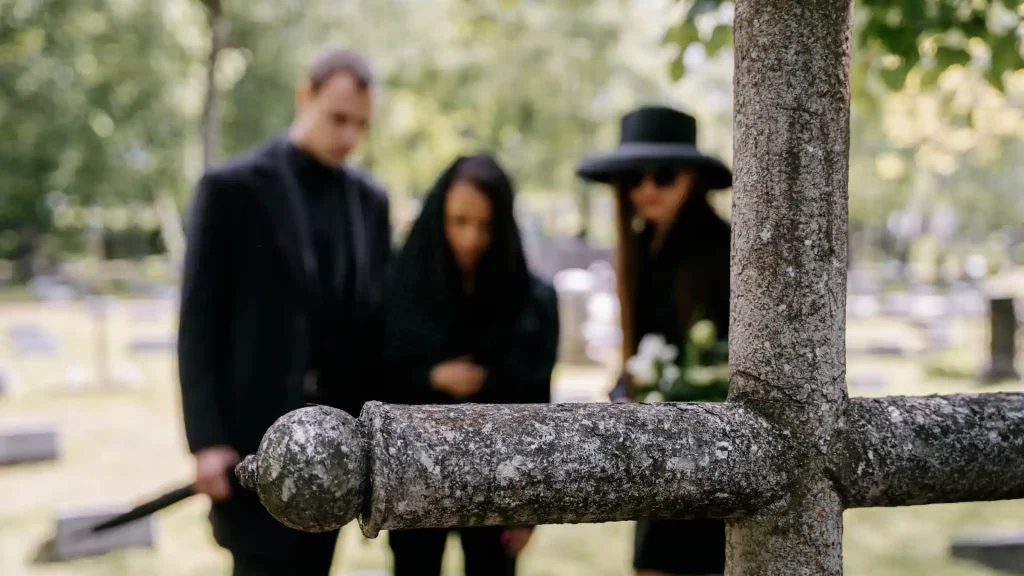
When a family member dies unexpectedly, the effects touch every aspect of your life. Yes, there is an immense financial toll. But more importantly, you also lose the emotional support and affection your loved one provided. No amount of money will compensate for that loss, but a loss of consortium wrongful death claim in Florida can help you recover compensation and a measure of justice.
Jurewitz Law Group Injury & Accident Lawyers frequently represents grieving family members in Tampa wrongful death claims. We know you want to hold whoever caused your family member’s death accountable, and we are here to help you do that. But first, it’s crucial to understand what a loss of consortium claim is, and explaining the concept of loss of consortium can help you see how it applies to your situation and what it takes to make an effective case.
What Is Loss of Consortium?
Loss of consortium refers to the emotional impact you suffer when a family member dies. In a wrongful death case, this principle usually applies to the loss of a spouse, though it can include a parent or child in some situations. The loss of consortium claim covers the loss of companionship, love, comfort, support, affection, and intimacy that the deceased provided.
A loss of consortium claim is not about your financial losses. It’s about the human connection that someone robbed you of when they caused your family member’s death. If your relationship with the person was close and meaningful, you may have the right to compensation. A loss of consortium claim is one way the legal system acknowledges the lasting effects of your family member’s death on your daily life and well-being.
How Loss of Consortium Applies in Wrongful Death Cases
Loss of consortium doesn’t apply only in wrongful death cases. It can also arise when a loved one suffers a life-altering injury. For example, if your spouse becomes paralyzed in a crash, you may lose the ability to share emotional closeness, companionship, or physical intimacy.
In wrongful death cases, however, the loss you experience is permanent. Your family member is gone, and no amount of treatment or therapy can bring them back. Loss of consortium claims in these situations reflect the emotional and relational impact that their death has on you and the rest of your family.
Some effects of a family member’s death that fall under a claim for loss of consortium include your loss of:
- Companionship – No longer having your family member by your side in daily life
- Emotional support – Missing their encouragement, comfort, and reassurance
- Affection – The end of loving gestures, shared routines, and small moments of connection
- Intimacy – The absence of physical closeness in a marital relationship
- Guidance – Losing a parent’s wisdom, advice, or similar role in your life
- Shared experiences – The inability to create future memories or plans together
How Much Is a Loss of Consortium Claim Worth?
How do you put a price on your emotional pain? It’s a challenging question, but courts have developed some methods to answer it.
One approach is the multiplier method. This formula involves calculating your economic damages (lost income, the deceased’s medical bills, etc.) and multiplying that number by a factor. The multiplier is usually between 1.5 and 5. The more severe and lasting the emotional impact, the higher the multiplier.
Another method is the per diem approach. In this method, the court assigns a dollar amount to each day you have or will experience emotional pain. The court then multiplies that daily figure by how many days you’re expected to suffer the impact. For example, if a spouse’s death leads to long-term emotional pain and suffering, the per diem amount might apply for several years.
In either case, your relationship with the deceased substantially affects your compensation. Courts will look at how close you were, how much you relied on them emotionally, and how the loss has impacted your life.
Proving Loss of Consortium in Court

Losing a spouse or other family member doesn’t always leave physical signs. Therefore, it can be challenging to prove your emotional pain. An experienced wrongful death personal injury lawyer can find tangible methods to quantify your intangible loss, such as:
- Personal testimony – You can share your account in court to describe how losing your family member has affected your daily life.
- Witness statements – Friends, relatives, or co-workers can describe how your life and relationships have changed.
- Photographs and videos – Images showing shared activities, family traditions, or milestones can highlight the closeness of your relationship with your lost family member.
- Letters, cards, or texts – Messages exchanged with your family member can show the emotional bond and personal connection you had.
- Journals or diaries – Written reflections can help document how your grief or emotional pain has affected your life over time.
- Therapist or counselor records – Notes from therapy sessions can support your claim by showing your emotional distress and changes in mental health.
- Medical or psychological evaluations – Professional assessments may confirm anxiety, depression, or other trauma resulting from losing a family member.
- Marriage or family records – Documents showing the length and strength of your relationship can help establish a close emotional bond.
- Social media posts – Public expressions of grief or shared memories can provide insight into your emotional connection and loss.
How Jurewitz Law Group Injury & Accident Lawyers Can Help with Your Loss of Consortium Claim
The Tampa wrongful death attorneys at Jurewitz Law Group Injury & Accident Lawyers can handle all aspects of your loss of consortium claim. We’ll take on the legal work so you can work through your grief in peace.
Our team will collect witness statements, therapy records, and personal materials that show how your loss has affected your life. We’ll also manage communications with the insurance company and negotiate for full and fair compensation. If needed, we can bring in expert witnesses to support your case. We’re open to alternative resolution methods when possible. Still, we’re also not afraid to take your case to trial to defend your rights if the insurer won’t make an appropriate settlement offer.
We work on a contingency fee basis, so you won’t pay us unless we recover your compensation. Call (619) 233-5020 now or complete our contact form for a free consultation.


